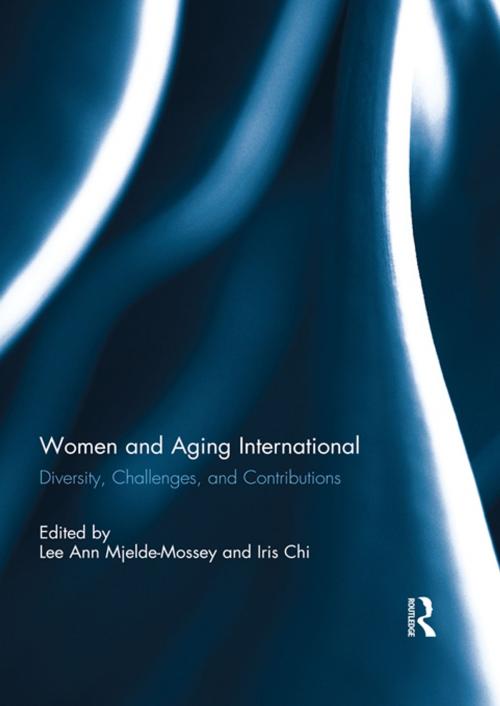Women and Aging International
Diversity, Challenges and Contributions
Nonfiction, Social & Cultural Studies, Social Science, Sociology| Author: | ISBN: | 9781135754792 | |
| Publisher: | Taylor and Francis | Publication: | September 13, 2013 |
| Imprint: | Routledge | Language: | English |
| Author: | |
| ISBN: | 9781135754792 |
| Publisher: | Taylor and Francis |
| Publication: | September 13, 2013 |
| Imprint: | Routledge |
| Language: | English |
According to a recent population report by the United Nations, "in most countries, older women greatly outnumber older men. In many cases, the difference is so large that the concerns of the older population should in fact be viewed primarily as the concerns of older women." Internationally, the concerns of older women emanate from the unique gendered challenges they experience because they are more likely to be widowed, poor, have lower educational attainment, fewer skills, restricted inheritance and land ownership, and have fewer sexual rights. To add to this negative scenario, ageist and sexist attitudes in both developed and developing societies throughout the world tend to categorize older women as non-contributing burdens even though they are in fact often highly productive and bear most of the burdens of family caregiving responsibilities. In spite of their majority status and list of concerns, older women are less likely to be equally represented in the literature on aging. This edited book introduces the reader to the diversity, challenges and contributions of older women in several of the major regions of the world.
This book was originally published as a special issue of the Journal of Ethnic and Cultural Diversity in Social Work.
According to a recent population report by the United Nations, "in most countries, older women greatly outnumber older men. In many cases, the difference is so large that the concerns of the older population should in fact be viewed primarily as the concerns of older women." Internationally, the concerns of older women emanate from the unique gendered challenges they experience because they are more likely to be widowed, poor, have lower educational attainment, fewer skills, restricted inheritance and land ownership, and have fewer sexual rights. To add to this negative scenario, ageist and sexist attitudes in both developed and developing societies throughout the world tend to categorize older women as non-contributing burdens even though they are in fact often highly productive and bear most of the burdens of family caregiving responsibilities. In spite of their majority status and list of concerns, older women are less likely to be equally represented in the literature on aging. This edited book introduces the reader to the diversity, challenges and contributions of older women in several of the major regions of the world.
This book was originally published as a special issue of the Journal of Ethnic and Cultural Diversity in Social Work.















